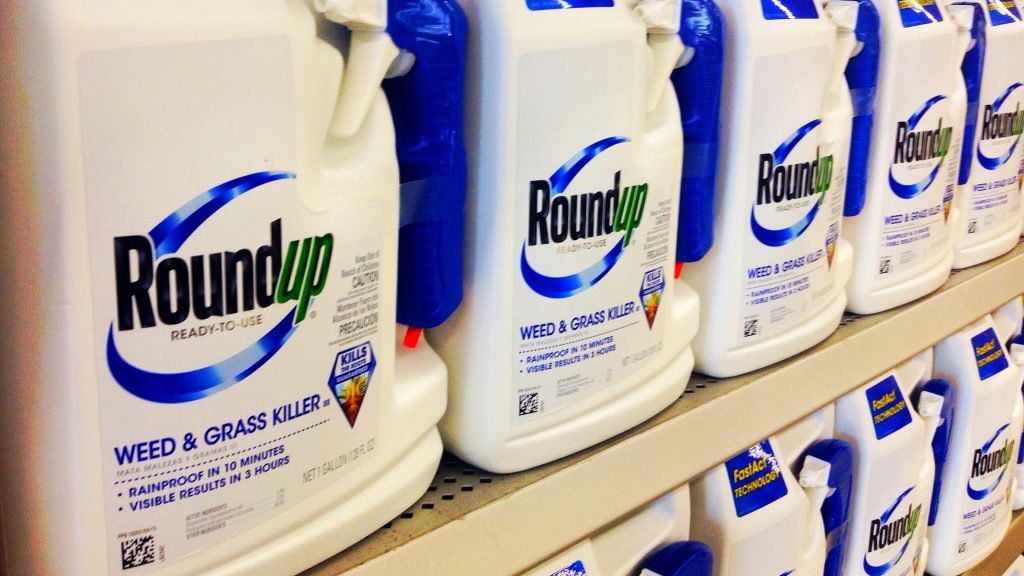MEPs call for full ban of Glyphosate by the end of 2020

October 19th, 2017
In a landmark move this morning, the European Parliament’s Environment Committee has backed a full ban on glyphosate-based herbicides by December 2020 and immediate restrictions on its use.
The Committee on the Environment, Public Health and Food Safety (ENVI) voted to back an objection to the European Commission’s proposal for a new ten-year license for the continued use of glyphosate.
Glyphosate’s approval under the EU Directive on the placing of plant protection products on the market is set to expire on 15 December 2017.
The objection also called on the Commission to “adopt necessary measures” to phase out glyphosate no later than 15 December 2020 and ensure that no use of glyphosate is authorised after that date.
The Committee has said that this should start with a complete ban on household use and a ban in use for farming when biological alternatives are found which work well for weed control.
All MEPs will vote on the resolution at the Plenary session in Strasbourg on 24 October. A vote on the Commission’s proposal to renew the marketing authorisation of glyphosate will be held the following day.

RoundUp Monsanto Photo: Mike Mozart
Glyphosate Controversy
The EU risk assessment process of renewing the substance’s licence has been mired in controversy.
The International Agency for Research on Cancer (IARC), the specialized cancer agency of the World Health Organization, classified glyphosate as probably carcinogenic to humans in 2015.
However, the European Chemicals Agency (ECHA) has said that there isn’t enough scientific evidence currently available to prove that glyphosate causes cancer, with the European Food Safety Agency (EFSA) arriving at the same conclusion in November 2015.
However, in a letter sent to EC President Jean-Claude Juncker in March, a group of 30 MEPs questioned the validity of a study used by the EFSA in its assessment. According to the letter, the study was co-authored by a former Monsanto employee.
Monsanto Papers
Glyphosate is the active ingredient in Monsanto’s Roundup product, the world’s most widely used herbicide.
MEPs discussed the “Monsanto Papers” at a public ENVI hearing last week. The Papers include a host of documents from US regulators and US scientists, as well as thousands of pages of internal Monsanto emails, memos and other documents.
Speaking at the hearing, investigative journalist Carey Gillam of U.S. Right to Know said that the Monsanto Papers highlights how Monsanto has “ghostwritten research papers that assert glyphosate safety for publication and regulatory review”.
She also said that the Paper reveals how Monsanto “enlisted” three EPA officials to block a 2015 Glyphosate Review by the U.S. Agency for Toxic Substances and Disease Registry that “Monsanto said would likely agree with IARC”.
The Parliament denies Monsanto official’s access to the assembly’s buildings for the hearing after the company’s refused to appear before the assembly.
Internal Monsanto documents unsealed by a federal court in San Francisco earlier this year also suggest that the company had ghost-written research later attributed to academics.
Over 50 lawsuits have been filed in the U.S. District Court in San Francisco against Monsanto by plaintiffs alleging that exposure to Roundup caused them or family members to develop non-Hodgkin lymphoma. The plaintiffs also allege that Monsanto covered up the risks.
A European Citizen’s initiative calling for a ban on the herbicide which reached a million signatures in less than a year has triggered a public hearing to be called in the Parliament in November.
A recent European Food Safety Authority (EFSA) study found that Ireland has the second-highest levels of glyphosate in surface water, with the chemical also detected in drinking water.
[x_author title=”About the Author”]







